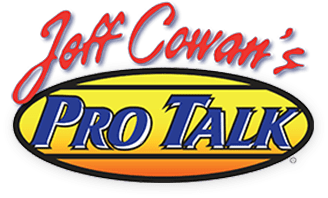In today’s competitive automotive service industry, finding exceptional service advisor candidates can make the difference between a thriving service department and one that merely survives. The best service advisors combine the right attitude with strong customer focus and an eagerness to learn, creating the foundation for long-term success. Understanding how to identify and attract these qualities during the recruitment process is essential for building a high-performing service team.
Prioritizing Attitude Over Experience
While technical knowledge and industry experience are valuable, a great service advisor candidate is professional, friendly, organized, and experienced in the field, but attitude often proves more important than technical expertise. The right attitude encompasses enthusiasm, positivity, and genuine care for customer satisfaction—qualities that can’t easily be taught but form the foundation of exceptional service.
An enthusiastic employee will typically show up on time, show interest in his or her job, and demonstrate a willingness to listen, learn, and try new things, making attitude a crucial factor in long-term success. Candidates with positive attitudes adapt more quickly to your service department’s culture, embrace training opportunities, and maintain performance even during challenging situations.
When evaluating candidates, look for signs of genuine enthusiasm during interviews, positive body language, and authentic interest in helping customers solve their problems. These indicators often prove more predictive of success than extensive automotive experience alone.
The Customer-First Mindset: Non-Negotiable Quality
A service mindset means possessing a willingness to create a positive and memorable customer experience by always being ready to serve others and make customers happy. This customer-centric approach must be genuine and natural, as customers quickly detect inauthentic service attempts.
During recruitment, assess candidates’ natural inclination toward customer service through behavioral interview questions and role-playing scenarios. Ask about previous experiences where they went above and beyond for customers, how they handle difficult situations, and their philosophy about customer service excellence.
The three crucial components of providing customer service, or the three p’s, are professionalism, patience and a “people-first” attitude. Look for candidates who naturally demonstrate these qualities rather than those who simply recite service mantras they’ve memorized.
Essential Communication Skills and Active Listening
Being a great communicator is at the core of succeeding as a service advisor. Most of your day will be spent conveying information between the service technician, the customer, the service manager and dealership leaders — in a way that each group will understand clearly. This translation ability requires both technical understanding and exceptional interpersonal skills.
When a customer comes in to get their car serviced, you are the first person they talk to, so strong communication skills and a friendly demeanor are crucial. Your job is to listen to their concerns, making active listening skills essential for success.
During interviews, observe how candidates listen to your questions, whether they ask clarifying questions, and how effectively they communicate complex ideas in simple terms. These skills directly translate to their ability to understand customer concerns and explain technical recommendations clearly.
Willingness to Learn: The Growth Mindset
Willingness to learn is the basis for growing skills as a customer service professional. The automotive industry constantly evolves with new technologies, service procedures, and customer expectations, making adaptability and learning agility crucial qualities for long-term success.
Look for candidates who demonstrate curiosity about automotive technology, ask thoughtful questions about your service processes, and show genuine interest in professional development opportunities. Previous examples of learning new skills quickly or adapting to changing work environments provide strong indicators of future success.
Candidates with growth mindsets embrace challenges as learning opportunities rather than obstacles, making them more likely to succeed in the dynamic automotive service environment.
Key Personality Traits to Identify
Resilience and Stress Management
Service advisors can manage stress by focusing on what they can control, having their paperwork in order, and maintaining calm under pressure. The service advisor role involves managing multiple competing priorities while maintaining excellent customer service standards.
During recruitment, explore how candidates handle stressful situations, their strategies for staying organized, and their ability to remain positive when facing challenges. Look for specific examples of maintaining performance during high-pressure situations.
Problem-Solving Abilities
Service advisors must think critically to diagnose customer concerns, recommend appropriate solutions, and resolve unexpected issues that arise during service appointments. Skills required for a service advisor include automotive knowledge, strong communication and listening skills, time management, the ability to think on their feet and self-motivation.
Present candidates with hypothetical service scenarios during interviews to assess their problem-solving approach, logical thinking, and ability to consider multiple solutions before making recommendations.
Organizational Skills and Attention to Detail
The ideal candidate will possess excellent communication skills, a compassionate and patient attitude, and have the ability to perform basic math skills. Additionally, strong organizational skills ensure accurate documentation, proper follow-up, and efficient workflow management.
Evaluate candidates’ organizational systems, their approach to managing multiple tasks simultaneously, and their attention to detail through practical exercises or discussions of their current work methods.
Effective Recruitment Strategies
Crafting Compelling Job Descriptions
Create job descriptions that emphasize growth opportunities, training programs, and the importance of customer service excellence rather than focusing solely on technical requirements. Highlight your commitment to employee development and the potential for career advancement.
Use language that appeals to service-oriented individuals who value making positive impacts on customers’ lives. Emphasize the variety and challenge inherent in the role while being honest about its demands.
Expanding Your Candidate Pool
Look beyond traditional automotive backgrounds to identify candidates with strong customer service experience in other industries. Retail, hospitality, healthcare, and financial services often produce excellent service advisor candidates who bring fresh perspectives and proven customer service skills.
Consider candidates from insurance, banking, or technical support roles who demonstrate the right attitude and communication skills, as these transferable abilities often prove more valuable than automotive-specific experience.
Behavioral Interview Techniques
Use behavioral interview questions that reveal candidates’ natural service orientation, problem-solving abilities, and resilience. Ask for specific examples of customer service situations, how they handled difficult customers, and times they went above and beyond expectations.
Role-playing exercises can reveal candidates’ communication style, patience levels, and ability to remain calm under pressure while solving customer problems.
Assessment and Selection Process
Skills-Based Assessments
Implement practical assessments that evaluate communication skills, basic math abilities, computer literacy, and customer service instincts. These assessments provide objective data to complement interview impressions.
Consider having candidates interact with current team members or customers in controlled settings to observe their natural service behaviors and interpersonal skills.
Reference Checks and Background Verification
Conduct thorough reference checks focusing on work ethic, customer service abilities, reliability, and ability to work effectively in team environments. Previous supervisors can provide valuable insights into candidates’ true performance under pressure.
Verify employment history and look for patterns of job stability, career progression, and positive relationships with previous employers and colleagues.
Building an Attractive Employment Value Proposition
Professional Development Opportunities
Emphasize your commitment to ongoing training, certification programs, and career advancement opportunities. High-quality candidates seek employers who invest in their professional growth and provide clear paths for advancement.
Highlight specific training programs, mentorship opportunities, and the potential for progression into senior advisor or management roles within your organization.
Competitive Compensation and Benefits
Structure compensation packages that reward both base performance and exceptional customer service results. Include benefits that appeal to service-oriented professionals, such as flexible scheduling, performance bonuses, and recognition programs.
Consider non-monetary benefits like flexible time off, continuing education support, and employee recognition programs that appeal to candidates who value work-life balance and professional growth.
Conclusion: Building Your Dream Service Team
Successfully recruiting exceptional service advisor candidates requires a strategic approach that prioritizes attitude, customer focus, and learning agility over purely technical qualifications. A positive attitude, proactive approach to problem-solving, and willingness to take on new challenges combined with strong communication skills create the foundation for service advisor success.
The investment in recruiting the right candidates pays dividends through improved customer satisfaction, increased service revenue, reduced turnover, and enhanced team morale. By focusing on intrinsic qualities like attitude and customer orientation while providing comprehensive training for technical skills, you can build a service team that drives both customer loyalty and business profitability.
Remember that the best service advisors are not just order-takers—they’re customer advocates, problem-solvers, and revenue generators who represent your dealership’s commitment to excellence. Taking the time to identify and recruit candidates with the right combination of attitude, aptitude, and growth potential ensures long-term success for both your service department and your customers.
Frequently Asked Questions (FAQs)
1. Should I prioritize automotive experience or customer service skills when recruiting service advisors?
While automotive knowledge is valuable, prioritize candidates with strong customer service skills, positive attitudes, and willingness to learn. Technical knowledge can be taught through training programs, but attitude and genuine customer focus are intrinsic qualities that are much harder to develop after hiring.
2. What are the most important personality traits to look for in service advisor candidates?
Key traits include genuine enthusiasm for helping customers, resilience under pressure, strong communication skills, attention to detail, and a growth mindset. Look for candidates who demonstrate patience, empathy, and the ability to remain calm while solving problems and managing multiple priorities simultaneously.
3. How can I assess a candidate’s customer service abilities during the interview process?
Use behavioral interview questions asking for specific examples of customer service situations, conduct role-playing exercises simulating difficult customer interactions, and observe how candidates communicate throughout the interview process. Their natural communication style and problem-solving approach often predict their service performance.
4. What compensation strategies help attract top service advisor talent?
Offer competitive base salaries plus performance-based incentives tied to customer satisfaction scores and service revenue. Include benefits like flexible scheduling, professional development opportunities, health benefits, and clear advancement paths. Non-monetary benefits such as recognition programs and continuing education support also appeal to quality candidates.
5. Should I consider candidates from non-automotive backgrounds for service advisor positions?
Absolutely. Candidates from retail, hospitality, healthcare, insurance, or technical support often bring excellent transferable skills including customer service experience, communication abilities, and problem-solving skills. Their fresh perspectives can be valuable, and automotive technical knowledge can be developed through comprehensive training programs.








 Based in the USA
Based in the USA